Page 1
Built environment
-
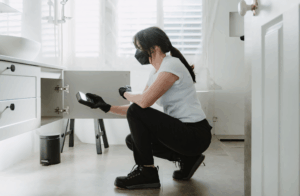
Insights from a mould inspector
Ecolibrium speaks with Jess Ward, whose experience with mould-related illness led to an extraordinary career change.
-
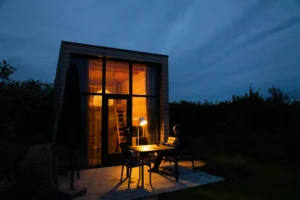
The big impact of tiny living
Australians own and use an excessive amount of floor space compared to other countries. Laura Timberlake explores how going small can have big benefits for thermal performance, heating and cooling costs, and the embodied carbon of residential buildings.
-

Key takeaways from IAQ25
We look back at the major discussions from AIRAH’s 2025 Indoor Air Quality Conference (IAQ25), which was held in Melbourne from May 26–27.
-
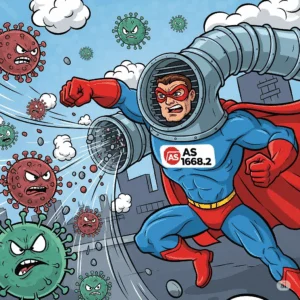
Celebrating AS 1668.2, Australia’s misunderstood ventilation hero
Sonia Holzheimer, M.AIRAH, reflects on the good, the bad, and the ugly misunderstood aspects of AS 1668.2.
-

HVAC in the outback
A program in South Australia’s APY Lands is retrofitting housing to study how homes can withstand one of the world’s harshest climates.
-

Meet this cool new (meta)film star
Ecolibrium speaks to Yangzhe Hou, part of a research team that recently developed a bioplastic metafilm with fascinating cooling properties.
-

Down to the wire
With a global shortage of copper looming, could aluminium cable be a safe and cost-effective substitute for low voltage underground power supply? Lasath Lecamwasam and Martin Lynch investigate.
-
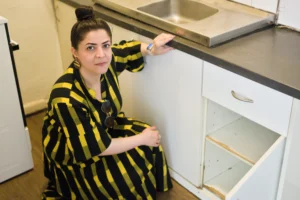
Breaking the mould
When Dr Mali Rezaei moved into a one-bedroom rental in Melbourne’s southeast in 2021, she had no idea how severely her life would be affected by mould.
-
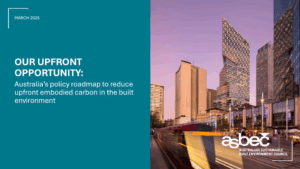
ASBEC releases embodied carbon roadmap
The Australian Sustainable Built Environment Council (ASBEC) has released a policy roadmap to reduce upfront embodied carbon in the built environment.
-
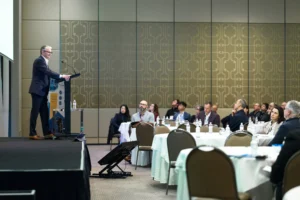
The importance of safe air at events
Amy Lewis from the Safer Air Project introduces a toolkit for making events safe, accessible, and inclusive for those at risk from poor IAQ.
-

Why does hot air rise?
We’ve all heard the saying “hot air rises”. Daniel Bonatti, M.AIRAH, explains why this phenomenon occurs, how our understanding has evolved over time, and what it means for practical applications in building design.
-

Slow response to new filter standards
An important changeover of filter standards is underway in Australia, but industry has so far been slow to move.
-

Spectacular conversion
Cutting-edge HVAC and BMS design played a huge role in the Canberra Raiders’ redevelopment of their spiritual home at Northbourne Oval. Here’s how the state-of-the-art project unfolded.
-

How’s your air? Q&A with Brandon Chappo
After mould-related illness turned Brandon Chappo’s life upside down, he co-founded Change the Air Foundation to do provide a voice for the millions of others affected.
-
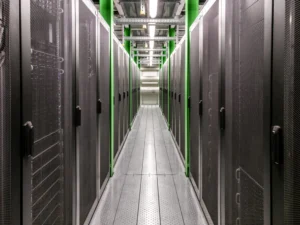
The importance of external CFD for data centres
This paper discusses the growing importance of external CFD in evaluating and optimising rooftop mechanical layouts for high-density data centres.
-
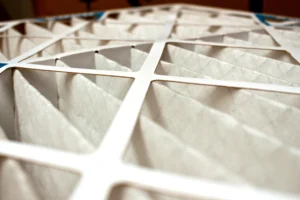
Mitigating airborne pathogens indoors: A systematic review of existing and next-generation air cleaning technologies
This technical paper provides a systematic review and comparison of existing and next-generation air cleaning technologies.
-

Legionella in a warming world
Clive Broadbent, L.AIRAH, discusses how climate change and increases in surface water temperatures could potentially encourage the growth of bacteria that prefer warm water (mesophiles), including Legionella.
-
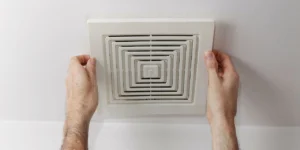
Double trouble
Mark Lommers, M.AIRAH, looks at the repeal of Western Australia’s controversial Sewerage (Lighting, Ventilation and Construction) Regulations 1971, which for more than 50 years required the doubling up of toilet exhaust fans.
-

Howzat for heat monitoring?!
Nick Johns-Wickberg discovers how a heat monitoring tool developed by the University of Sydney is playing an important role in local sport.
-

Hidden hero: the importance of BMS
Building management systems are vital for HVAC performance and efficiency, but if they’re poorly designed or maintained, they can cause serious problems. Chris Stamatis, M.AIRAH, and Trevor Smith, Affil.AIRAH, showed Nick Johns-Wickberg and Mark Vender how these complex systems work in practice.